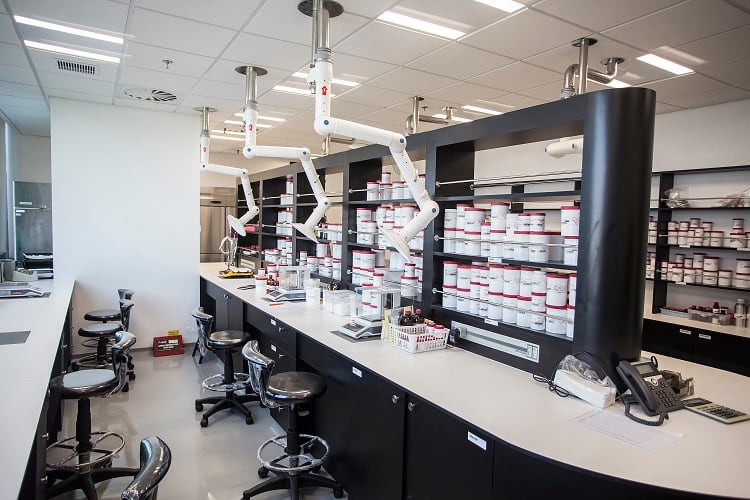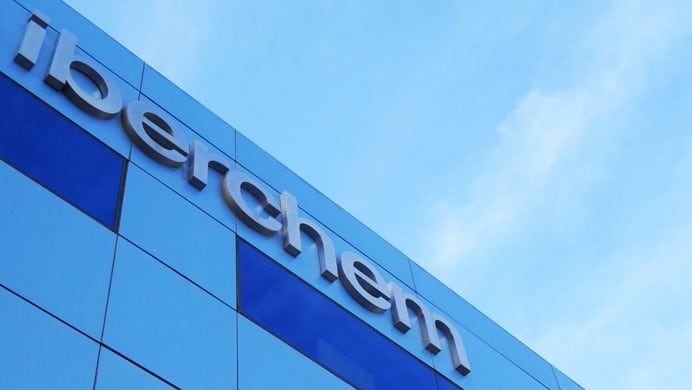The 2,600 square-metre complex, which will be used to develop and market formulations across its fragrance and flavour businesses, builds on premises operated in Indonesia since Givaudan entered the country in 1993, said Reggie Costillas, Indonesia commercial director for fragrance.
“Prior to the recent opening of the new commercial and development centre in Jakarta, the fragrance division had limited facilities. Now, with more space and outfitted with the most modern and state-of-the-art fragrance capabilities, such as evaluation booths and a hair salon, our teams and customers are able to develop and test perfumes for consumers to enjoy,” he said.
New features
The new facilities include evaluation cabins, a hair salon and a focus-group discussion room that has been designed for staff to work closely with Indonesian consumers to better understand their olfactive preferences.
“We use these learnings in the development process to create winning consumer-preferred fragrances. These interactions with consumers help us to jointly craft holistic solutions and concepts to answer specific needs such as shampoos for hijab users,” Costillas added.
In terms of fragrances, local consumers generally prefer familiar scents that are also “fresh and clean,” he said. Some favourite imprinting smells include fruity notes such as lime, apple and lemon and florals such as jasmine and lily.
From a flavours perspective, the new centre will enable added capabilities for Givaudan to 'test and demonstrate flavours' and 'enable brands to go to market quickly', said Tansukh Jain, Givaudan Head of Flavours ASEAN.
"[We are targeting] a wide range of food, beverage and consumer good segments including, sweet goods, savoury, snacks and beverages," he said.
"Nearly half of Givaudan’s growth stems from Asia, with Indonesia and Southeast Asia important markets for Givaudan as they are the biggest and fastest-growing."
Halal demand
With Muslims accounting for almost 90% of the Indonesian population of around 265m, the country is the most populous Islamic nation, with a vibrant middle-class that is increasingly looking for Sharia-compliant products.
And with all consumer products in the country being required to show Halal certification by 2019—as aside from the voluntary system today— Costillas claims Givaudan has been proactively working to ensure compliance in its production.
“Our Indonesian factory in Cimanggis has been Halal-certified since June 2016 and together with some key customers, we have successfully developed Halal-certified fragrances for home- and personal-care products,” he said.
The new Jakarta facility comes as part of Givaudan’s plan to invest in high-growth markets like Indonesia, the fourth most populous nation in the world, with a fast-growing middle-class and rapidly increasing consumption. The country’s economic performance is expected to continue to lead Southeast Asian—and global—growth over the coming years.
“This investment reinforces Givaudan’s 2020 strategy of investing in high-growth markets and it is strategically positioned to enhance Givaudan’s leadership in Indonesia,” Costillas said.
“Equipped with the most modern and state-of-the-art facilities and tools, the centre allows us to partner closely with our customers in Indonesia, and will enable our teams to work in close collaboration to create the best quality fragrances to delight consumers locally and beyond.”
Trends in flavours
Jain added that flavour trends in the Indonesian market are veering towards health and wellness.
"Current trends have consumers demanding healthier, safer, and more natural products and flavours," he added.
"Sugar reduction is also high on the national agenda in Indonesia and brands need to find lower sugar alternatives while retaining product taste in order to meet consumer demands and/or government regulation."




